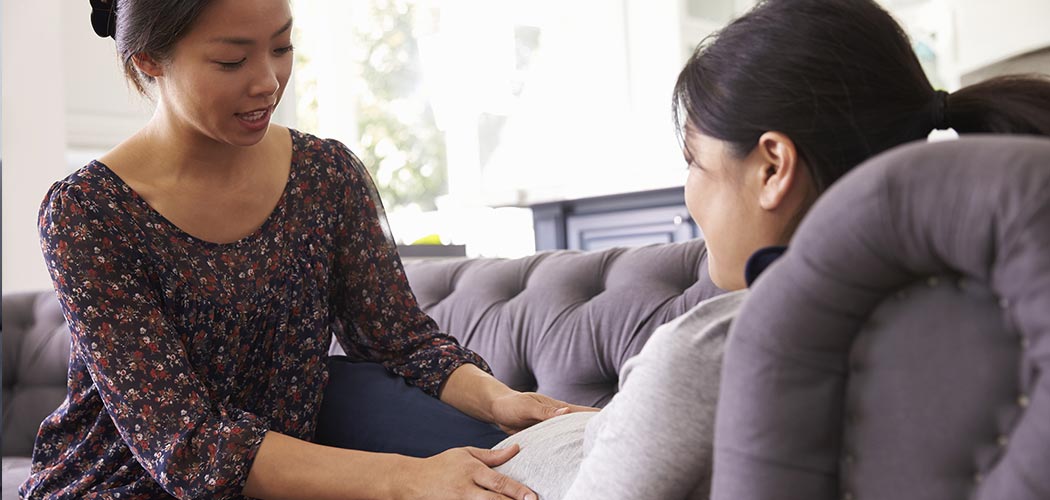A vast majority of women in the United States do not use a doula during their pregnancy journey. In fact, in 2013, only 6% of mothers polled by the New York Times reported that they had used a doula. However, that number shows that doula use is rising. In 2005, only 3% of women reported using a doula.
The increase in using doulas might be due to an increased public understanding of what a doula does. Yet, there are still many who do not know what a doula is or what they do. Furthermore, if they have heard of a doula, they may hold misconceptions. In this article, we explain what a doula is, what they do, and how they help pregnant mothers. And, we debunk the myths around doulas, hopefully encouraging others to consider a doula during their pregnancy journey.
What Is a Doula?
A doula is a trained professional whose sole purpose is to provide continuous physical, emotional, and informational support, as well as guidance, to mothers. This usually includes supporting the mother before, during, and shortly after childbirth to help her achieve the healthiest, most comfortable pregnancy journey. They do not have medical or legal training, but most do have to complete a certification. They also attend a handful of live births before they can provide their own support to a mother-to-be.
What Does a Doula Do?
It’s obvious that doulas provide expecting mothers with support. But you may be wondering what that looks like. While they cannot provide medical guidance, they can work with medical staff to help create a safe space for mothers. Doulas can also act as someone who can listen to mothers during the emotional obstacles of pregnancy and childbirth. They can also provide comforting touch, massages, verbal encouragement, and any non-medical equipment the mother might need. In addition, doulas can also serve as a guide for mothers-to-be both before and during labor and delivery, as they can provide advice on what is and isn’t “normal.”
According to Ravae Sinclair, president of DONA International, the largest doula-certifying agency, “If you’re in pain and worried about your baby, it can be difficult to navigate the doctors and hospital and nurses. Doulas kind of serve as a cheat sheet of your options.” Essentially, a doula can act as a mother’s personal guide and advocate through the entire pregnancy and birthing process.
What Are the Misconceptions About Doulas?
Many expecting mothers feel like they do not have to have a doula if they have a support partner, such as their husband, wife, or partner. While the support they can receive from their companion is valuable, most partners do not have the birth training and experience as a doula. Having both a doula and a partner can provide their own value and create a wonderful birthing process for the mother.
Others have also heard that doulas only work with expecting mothers that want a “natural” birth (one without routine medical intervention, such as pain medication). That’s not true. They work with mothers on the entire spectrum of childbirth, whether it be a home birth or a planned cesarean birth in a hospital setting. On the opposite side, many think a doula is a medical professional, which they are not. Rather, they are a complementary support system to the mother.
Finally, many expecting mothers worry that a doula will act as the voice of the mother-to-be and control the situation. Doulas, however, are only trained to remind expecting mothers of the options mothers have and evidence around the options. Instead, doulas advocate for mothers to speak for themselves and exercise their own values during the process.
Hope Smith and Her Journey With Doulas
Doulas hold a special place in entrepreneur and philanthropist Hope Smith’s heart. Not only did she use one for her pregnancies, but she is also a doula, completing her training in 2018. In her upcoming book “Your Body is Magic,” Hope Smith expresses her affirmation for doulas, using advice from DONA-certified doula Khristina Helmich to help craft sections of her book. She also advocated that a doula is a pregnancy “must-have” in her AMA session on Instagram.
While using a doula might seem against the norm for many women, Hope is all about breaking those conventions while accepting and supporting mothers in their choices.
“Trust your instincts,” says Hope. “Parent the way you want to parent. Listen to parenting audiobooks or read to gain knowledge from experts when you have the time. Figure out what your values and traditions are and hold to them. Evolve as necessary.”
Hope and MUTHA™, the luxury skincare brand of which Hope is founder and CEO, even launched the BAD MUTHAS campaign, which is about recognizing BAD MUTHAS and supporting women and mothers in all that they do.
